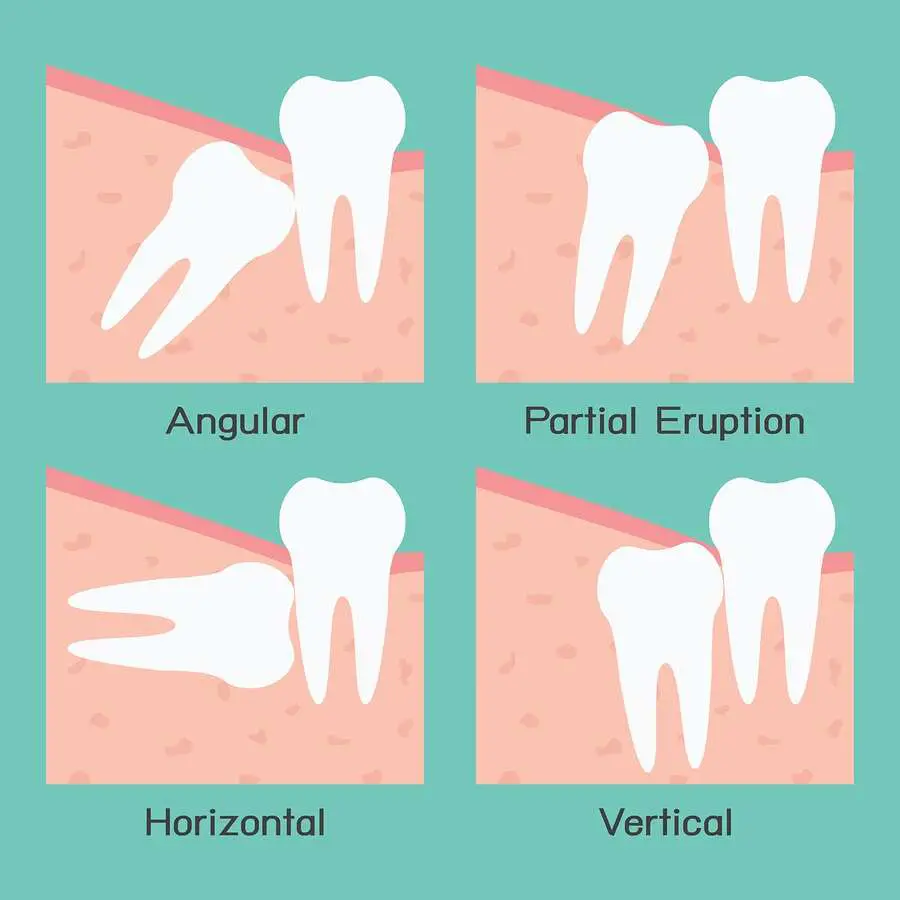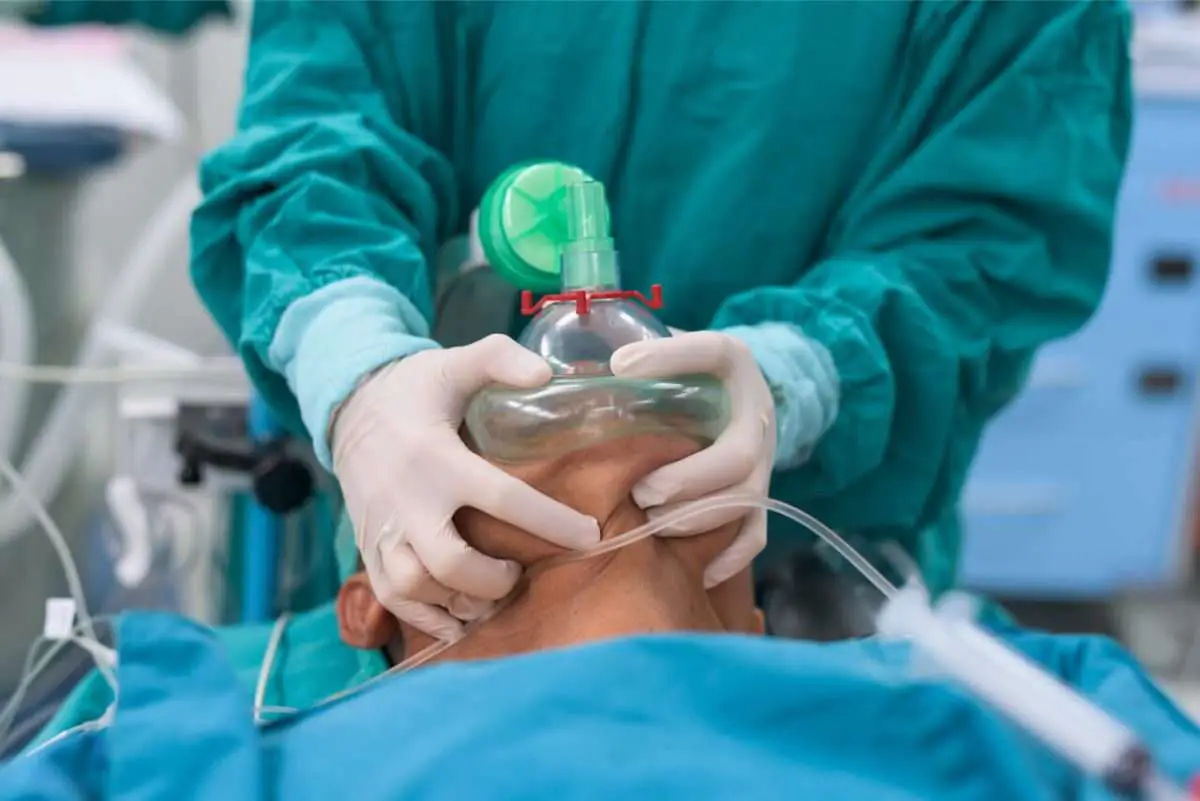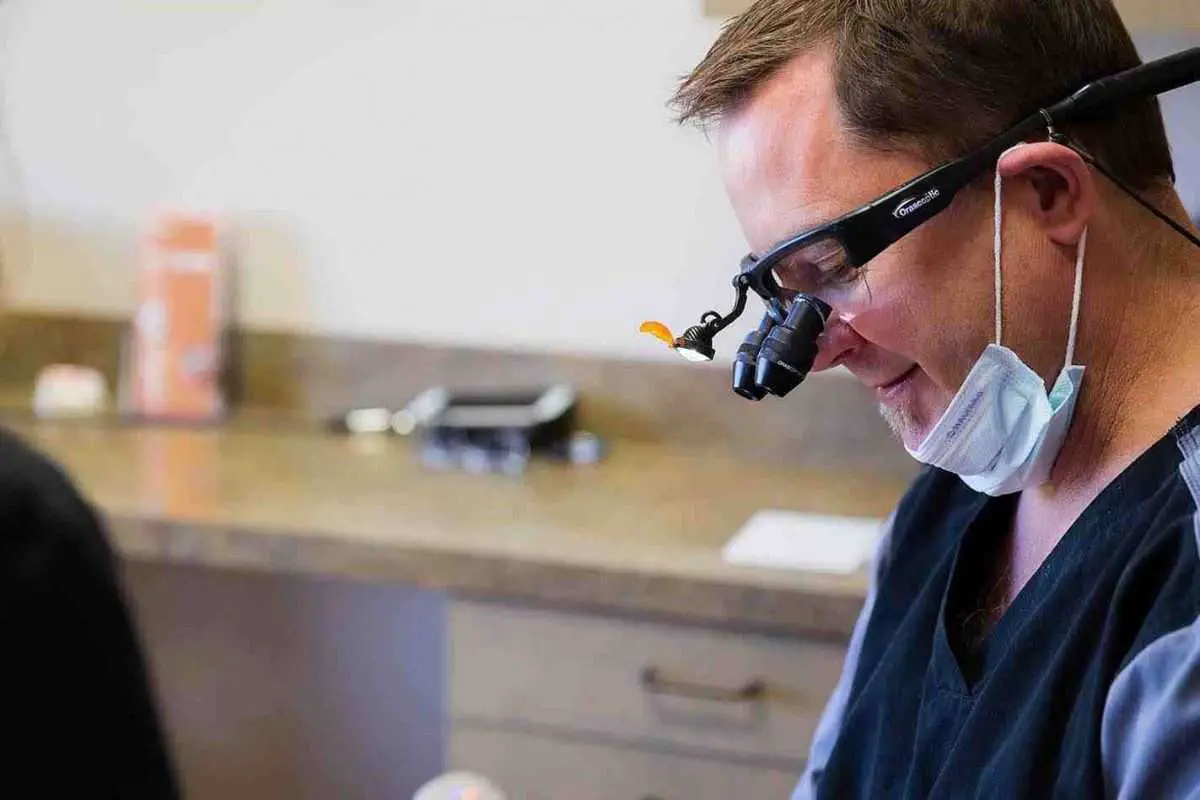Contact Us For More Details About Dental Care In Chester Springs Pa
Tooth extraction can be a necessary dental procedure, and it will be more helpful if you use the proper sleeping habits afterward. You can talk with us at Byers Station Dental in Chester Springs, PA if you have further questions about how well the extraction can work and what you should do afterward. Our full-service family practice is available for patients throughout the Chester Springs area, including in nearby spots like Eagle, Exton, and Ludwigs Corner. Contact us today to schedule a consultation with Dr. Rachel Moon for your dental care needs.
Do They Put You To Sleep For Wisdom Teeth Removal
Did your dentist say that you need to remove your wisdom tooth? Then chances that are you are feeling anxious and have a lot of questions in your head. Most people who are recommended wisdom teeth removal have several concerns what will the procedure look like? Will it be painful? Do they put you to sleep for wisdom teeth removal?
Dental procedures have evolved with the advancing technologies. Today, the procedure for wisdom teeth removal is painless. All thanks to the use of anesthesia. But, being anesthetized does not mean that you will fall asleep during the treatment. However, this is possible at times. How? Read on to find out your anesthesia options and what can make you fall asleep during wisdom teeth removal:
Nitrous Oxide Or Laughing Gas
This type of sedation is a mix of nitrous oxide and oxygen that you breathe through a mask placed over your nose. It helps reduce anxiety during the treatment. Oral medications may be used along with nitrous oxide and that can leave you groggy.
So, the answer to the question do they put you to sleep during wisdom teeth removal is, not necessarily. If you have wisdom teeth problems or any concerns regarding the treatment, then connect with us at Floss and Gloss Dental today.
Read Also: Sleep Number Vs Regular Mattress
Can You Sleep With Gauze In The Mouth After Tooth Extraction
Are you scheduled for wisdom tooth extraction or do you need to have one or more teeth removed for any reason? If the answer is yes, youre right to be wondering whether the procedure is safe and how to minimize its impact on your well-being the first few weeks after.
One of the most common questions patients or would-be patients ask is whether they can sleep with the gauze in their mouths.
Can you sleep with gauze in the mouth after tooth extraction? The answer is absolutely no. Sleeping with a gauze overnight should be out of the question. Take off the gauze after a maximum of 4 hours when the bleeding from the surgery wounds should have completely ceased.
When Is Sleeping With A Dental Gauze Permissible

There are situations when a dentist may allow the patient to sleep with a dental gauze in the mouth. This may be permissible for patients experiencing side effects such as drowsiness after teeth extraction.
But what can cause drowsiness after wisdom teeth removal in the first place? Well, the majority of dentists use oxygen and nitrous oxide, popularly known as laughing gas during the procedure to numb the patients pain as the teeth are removed.
This anesthesia is usually administered through the nose via a mask and allows patients to stay wide awake during the procedure.
However, some patients may have to be heavily sedated with stronger medications to enhance the success of the procedure. Here are other anesthesia options that may be used during tooth extraction surgery.
Recommended Reading: Best Way To Burn Fat While You Sleep
Is Wisdom Tooth Extraction Painful
This is the most common question from patients before having their wisdom teeth removed: Will it hurt? As with any dental surgery, there will always be some mild discomfort associated with the procedure, but the dentist performing the surgery will take great care to make sure the patient doesnt experience any actual pain. This is achieved through the use of anesthesia and sedation. Letting wisdom teeth go without surgery can often lead to much more painful issues in the future.
When Can I Smoke After A Tooth Extraction
Your dentist will probably advise you to refrain from smoking for 72 hours after the procedure. You could use this as an opportunity to quit . If you don’t like the idea of going cold turkey, set yourself up with some nicotine patches so you can still get your fix while your mouth recovers.
As with drinking through a straw, the sucking action of smoking after a tooth extraction can cause the blood clot in your mouth to dislodge. If this happens it can lead to a very painful condition called dry socket something you’ll want to avoid. E-cigarettes carry the same risk, so vaping after a tooth extraction is also a bad idea.
To add to this, toxins in cigarettes can irritate your gums and lead to painful swelling at the extraction site.
Recommended Reading: Adjustable Bed For Sleep Apnea
Intravenous Fentanyl Versed Or Ketamine Anesthesia
Do you have a history of extreme anxiety during even the simplest dental or medical procedures? If yes, Laughing Gas may not be an option during tooth extraction surgery.
Instead, the dentist may choose stronger intravenous drugs such as Fentanyl, Versed, or Ketamine. These medications medically known as General Anesthesia may put the patient to sleep throughout the entire teeth extraction process and a couple of hours after, to ensure a higher chance of success.
The difference is that while teeth removal is usually done at the Dentists office, patients are typically taken to a hospital when General Anesthesia is involved. This is because the anesthesia is administered by Anesthesiologists, who are doctors specialized in that field of medicine.
Besides, patients with complicated cardiovascular diseases or lung conditions may be put to sleep with this option.
With the patient still sedated immediately after the procedure, the dentist may have no option but to allow sleeping with the dental gauze in the mouth.
Tooth Extraction Pain: Does It Hurt
It’s normal for patients to feel some discomfort, soreness or pain after getting a tooth pulled. Your dentist should give you painkillers to help manage this or they may recommend suitable over-the-counter products. Alternatively, you can try one of these home remedies for tooth pain to help as you recover.
The area around the socket will probably feel tender and you may experience some swelling in your face.
This discomfort should subside 2-3 days after the extraction. If you continue to experience pain or you suddenly notice the pain worsening several days later, contact your dentist immediately as this could be a result of infection at the extraction site. Yellow or white discharge is also a sign of infection.
Read Also: Nest Bedding Love And Sleep
Is It Painful To Have Wisdom Teeth Removed
The tooth extraction is not painful because you will be under the influence of anesthesia. You might be able to choose between general, oral sedation or IV sedation. Or your surgeon will recommend the best option for your procedure. Either way, you will be numb or asleep during the entire wisdom teeth removal process.
What If I Need An Emergency Extraction
Most patients who require emergency extractions head straight to the ER. However, hospitals will usually just give patients pain medication and refer them back to their dentist, because theyâre not equipped for that kind of work.
Many dentists, in turn, have to refer patients who need emergency extractions to an oral surgeon. Fortunately, thatâs not the case here at Murray Hill Dental. We do have an oral and maxillofacial surgeon on staff, Dr. Park, who can assess your case and perform an emergency extraction, if necessary.
Speaking of our esteemed dental staff, are you due for a dentist appointment? If so, you can schedule your visit using our appointment request form.
Alternatively, you can call us. To reach our N. Murray Hill Road office servicing the Western Columbus area, please contact 614.878.1188. To schedule an appointment at our Northern location in Westerville, call 614.890.5022. Were pleased to offer evening office hours for your convenience.
You May Like: Difference Between C2 And C4 Sleep Number
What Is General Anesthesia
General anesthesia is the only true sleep dentistry option. Under general anesthesia, patients remain completely unconscious throughout the treatment process. This ensures total comfort and relaxation, during even the most advanced oral surgery. For your safety, your vitals will be closely monitored throughout treatment, and if you are at increased risk for complications, we may recommend having the procedure performed in a hospital setting.
Pain During Tooth Extraction

To manage the pain, dentists will often give you anesthesia or perform sedation dentistry. What they provide to manage pain will depend on the complexity of your case and your comfort level. It is also possible that they may administer more than one type of anesthesia. Learn about tooth extraction.
Local Anesthesia
Local anesthesia is the most common treatment to numb the pain before extraction. Dentists will apply numbing substance to your gums near the tooth that is being extracted. They then administer a local anesthetic near the site of the extraction.The anesthetic will not eliminate the sensation. You might feel pressure or movement, but you shouldn’t experience pain. You’ll be awake during the procedure.
Sedation Dentistry
Nitrous oxide will help you relax during the procedure. It offer minimal sedation, and you are conscious as the tooth is being extracted. Your dentist or oral surgeon can provide you with a pill or tablet to get sedated.
While you are awake during the extraction, you’ll feel more relaxed and drowsy. For a more moderate type of sedation, your dentist will administer IV sedation by injecting it in your arm.
During sedation dentistry, your consciousness is suppressed. When the sedation wears off, you won’t fully recall how the procedure takes place. IV sedation is a deeper level of sedation.
Sedation dentistry is often used for complicated extractions, but it also used to calm patients who are anxious about the procedure.
General Anesthesia
Read Also: Sleep Number Adjustable Base Legs
How Does Sedation Dentistry Work
The process depends on the type of sedation your dentist chooses. If youre taking an oral sedative, for instance, your dentist will write you a prescription for the drug and give you instructions on how to take it. As long as you follow those instructions, youll benefit from reduced anxiety and increased relaxation. Once the medication begins to work, you should start to feel drowsy and content.
You dont have to prepare at all for nitrous oxide. Your dentist will supply it before, during, and right after the procedure. However, if you choose IV sedation, you might have to prepare in advance.
For instance, your dentist might ask you to fast not eat or drink anything for several hours before the dental work. You might also need to avoid taking certain medications the day before you visit the dentist because they can interfere with the sedation medication.
Increase Hours Of Sleep And Rest
While the body requires a certain amount of sleep, and that can vary by individual, when healing is taking place it is recommended to increase the amount of sleep that you are getting. The body heals more during sleep than during waking hours, so the more sleep you can get the faster you will heal, including after a tooth extraction.
For this reason, getting more sleep the first two weeks after surgery, and especially the first two to three days, is important. Eight to ten hours is recommended, preferably ten hours or more, and this can include taking naps during the day as needed.
Increasing quality sleeping hours will improve the reproduction rate of cells, and encourage cells to heal faster, while supporting new cell growth to replace damaged cells. As this occurs the area will be able to heal faster, and the chance of infection will be reduced.
If you are unable to reach the required amount of sleep, then more time should be spent resting when possible. In a resting state the body will divert more energy to healing, though not as much as during sleep, and you will find that you recover from the procedure more quickly.
Recommended Reading: Sleep Number Split King Reviews
Can I Go Back To Work After A Tooth Extraction
Some people feel well enough to return to work immediately after having a tooth removed, whereas others need more time to recover. A lot will depend on how many teeth are extracted and how complicated the procedure is. In any case, it will take an hour or two for any anaesthetic to wear off.
Consider taking a day or two off work to give your body time to rest, especially if you’re having a lot of work done or you have a history of slow recovery from medical procedures.
Biting Down The Gauze Too Hard
Dentists advise patients to bite down on the gauze gently after the teeth removal process. This applies direct but gentle pressure on the surgery site to promote blood clotting and easing of the bleeding.
If you suffer from Teeth Grinding at night, sleeping with a dental gauze can cause excessive biting which may lead to aggravation of the pain and discomfort. Besides, biting too hard on the surgery site can disintegrate the sutures.
This may worsen the bleeding and make it harder to eat or sleep.
Also Check: Sleep Number Bed P5 Vs I8
Can You Still Be Put To Sleep At The Dentist
Can you still be put to sleep at the dentist? A fear of dental procedures is very common even in our contemporary age of digital information and health consciousness. Many patients express worry over the connotations of vulnerability and potential discomfort which surround visiting the dentists.
In light of this modern phenomena, this review aims to finally put to sleep the confusion, speculation and common myths surrounding the world of dentistry, sedation and phobias. Keep reading to have a fully comprehensive knowledge of dental health for the next time you visit your local clinic.
What is dental sedation?
If deemed appropriate by the dental practitioner, you may be put under sedation to help relieve any physical or physiological pain that the operation is likely to induce.
The dental practitioner will administer the sedative drug either during or before the procedure begins. There are various types of sedation, only one of which general anaesthesia leaving the individual fully unconscious. The alternatives, which are more common in less serious treatments, will relax the patient but leave them still somewhat aware of the procedure going on around them.
So what are the types of sedation?
What should you do after sedation?
As a result of this, it is heavily advised that you rest at home the day after being put under sedation. Alongside this, you are cautioned not to do any of the following, as it could put yourself or others at risk:
What Is Sedation Dentistry
Sedation dentistry uses medication to help patients relax during dental procedures. It’s sometimes referred to as “sleep dentistry,” although that’s not entirely accurate. Patients are usually awake with the exception of those who are under general anesthesia.
The levels of sedation used include:
- Minimal sedation — you are awake but relaxed.
- Moderate sedation — you may slur your words when speaking and not remember much of the procedure.
- Deep sedation — you are on the edge of consciousness but can still be awakened.
- General anesthesia — you are completely unconscious.
Recommended Reading: Where Is The Nearest Sleep Number Bed Store
Keep The Head Elevated
You must also keep your head elevated while sleeping on your back after your extraction. The elevation keeps the extraction site level and allows fluid to drain from the area. You will have less of a risk of swelling in the area, plus you will not be likely to experience new bleeding if you keep your head elevated.
You can add a few pillows on your bed to keep your head elevated while you sleep. The design should help keep the head up while also keeping you from triggering any natural urges to get back on your side.
Our dentists at Byers Station Dental in Chester Springs, PA recommend you keep your head elevated for about the first week after the surgery. The timing is enough to allow blood to clot well in the extraction site.
Tooth Extraction Under General Anaesthetic

Most extractions, even surgical ones, can be done under local anaesthetic. This means you are awake for the procedure but you wont feel any pain. However, more complex cases may need to be performed under general anaesthetic, by a dental surgeon in a hospital. In this case, the whole procedure takes place after you have been put to sleep.
Child tooth extraction under general anaesthetic is more common, especially if several teeth need to be removed. This makes the process less traumatic for the child since they wont remember any of it. Adults who need to have multiple teeth extracted may also choose to do so under general anaesthetic . This means going to hospital for the treatment but recovery will be much the same.
Another reason you may need a surgical procedure rather than a simple extraction is if there is no tooth remaining above the gum line. This might be because of severe decay or perhaps an injury. In this case, the dentist must cut into the gum to access the remaining tooth root.
Cracked or fractured teeth can also be more complicated to extract since there is a risk of them breaking.
Don’t Miss: Can A Sleep Number Bed Go On A Platform Bed